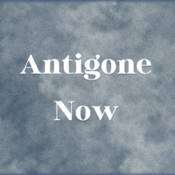
Overview
Synopsis
Melissa Cooper’s Antigone Now is a one-act play inspired by Antigone by Sophocles. The story is condensed but still the same: Antigone’s two brothers have killed each other in a brutal war over who will rule Thebes. In the aftermath, Creon becomes king and intends to restore peace and order. He orders that only one brother, Eteocles, will be buried, and Polyneices, a traitor in Creon’s eyes, will be left to rot. But Antigone can’t bear the thought and defies Creon by burying Polyneices. Cooper’s version is limited to four characters played by an ensemble cast, though the character of Chorus can be played by up to eight actors. Antigone Now has a short run time and no set requirement, so it is a good option for middle or high school productions and one-act festivals. Its updated language and simplified story make its source material accessible to younger audiences for classroom use.
Show Information
Context
Plot
Characters
| Name | Part Size | Gender | Vocal Part |
|---|---|---|---|
|
Lead |
Female |
Non-singer |
|
|
Supporting |
Female |
Non-singer |
|
|
Supporting |
Male |
Non-singer |
|
|
Ensemble |
Either Gender |
Non-singer |
Songs
A song with an asterisk (*) before the title indicates a dance number; a character listed in a song with an asterisk (*) by the character's name indicates that the character exclusively serves as a dancer in this song, which is sung by other characters.
Monologues
Scenes
Key Terms
A performance technique where an actor speaks directly to the audience, breaking the fourth wall for dramatic or comedic effect.
A group of performers who function as a unit in a production rather than as individuals with leading roles.
A group in Ancient Greek theatre that commented on the action, represented the public, and provided narrative insight.
A Tragedy is a form of drama that explores human suffering, conflict, and loss, often leading to a disastrous or fatal conclusion. Traditionally, the main character experiences downfall due to a personal flaw, poor judgment, or forces beyond their control. Tragedy aims to evoke pity and fear in the audience, leading to reflection and emotional release.
Videos
Quizzes
Themes, Symbols & Motifs
Sorry! We do not currently have learning modules for this guide.
Quote Analysis
Sorry! We do not currently have learning modules for this guide.
